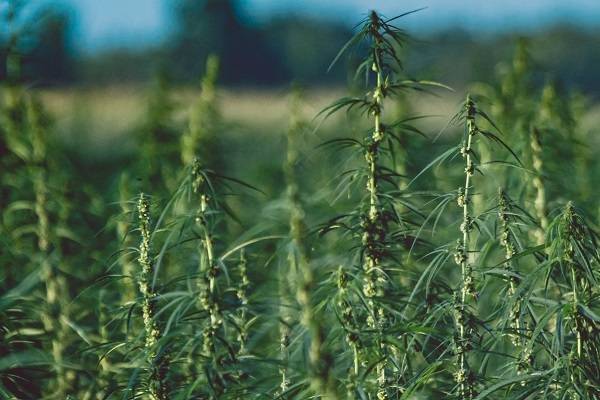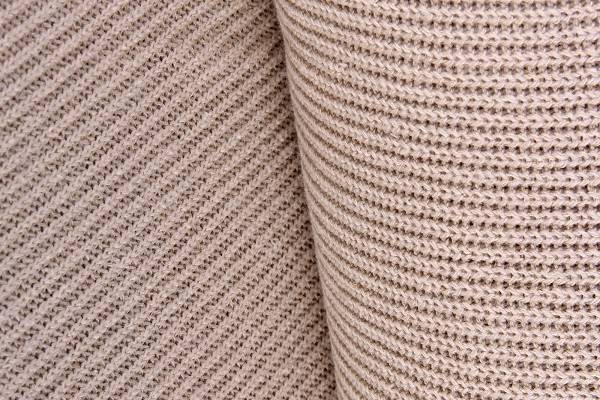Hemp vs. Cotton: Exploring the Pros and Cons of Nature’s Fibers
Find out the Difference Between Two Main Eco-Fashion Fibers
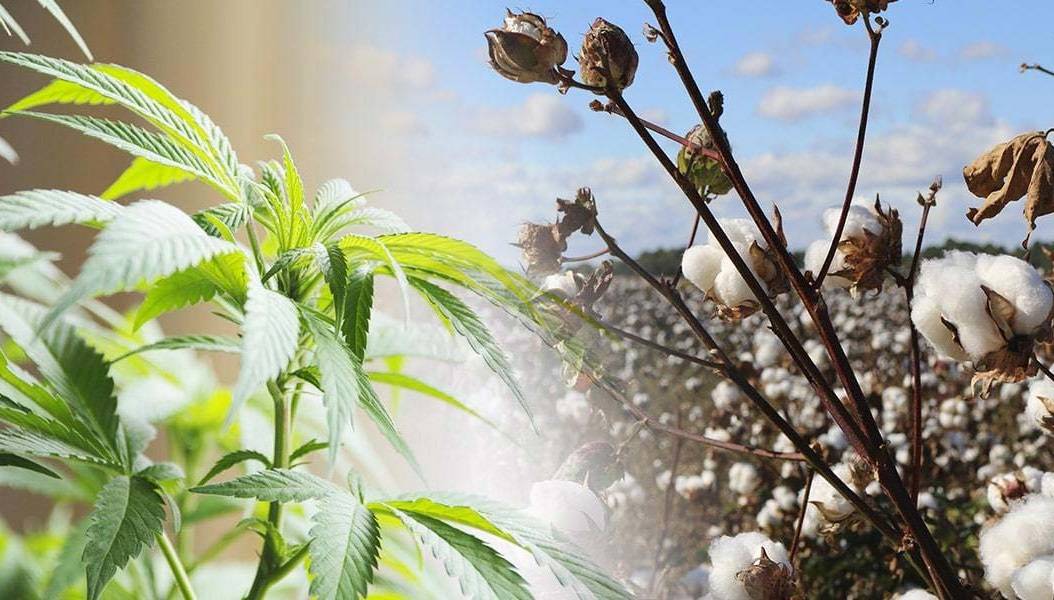
Innovation & Quality
Developing and supplying premium-quality, sustainably grown, consumer products
100% Natural
Organically Grown and Ethically Sourced
hemp and other natural fiber products
Shipping
We offer fast shipping
Your order out within 1-3 days
Wholesale
Visit our wholesale portal to register or login to your account
In this article, we will explore the differences and similarities between two natural fibers: hemp and cotton. Cotton makes up most of the global apparel and upholstery industry, as it is comfortable, inexpensive, and easily accessible. However, there is a growing concern about the environmental impact conventional cotton has on the planet. With hemp emerging as a miraculous plant, and a popular sustainable alternative to cotton, we start asking ourselves: Which is better and stronger, hemp or cotton? By exploring the distinct qualities of both, we will shed light on their durability, comfort, longevity, versatile usage, ecological impact, and overall sustainability.
Partner with Hemptique, the Best in Hemp World
We are your ultimate destination if you need 100% pure products made of hemp fiber. Hemptique offers a wide range of premium earth-friendly hemp products for various industries. With a strong commitment to sustainability and innovation, we have earned a reputation for being a trusted supplier for crafters and businesses. Our product line comprises versatile, meticulously sourced hemp cords, twine and yarn, rope, canvas, clothing and apparel products that meet the highest quality and sustainability standards. Furthermore, Hemptique provides tailored solutions and customization options for wholesale ordering. For all retail and wholesale inquiries about our superior biodegradable hemp fiber products, reach us via our contact page. For bulk orders or if you want to become a wholesaler, apply for a wholesale account. Experience the Hemptique difference and explore the infinite possibilities of hemp fiber in your business.
HEMP THROUGH HISTORY
Hemp has been around for thousands of years. From its origins in ancient civilizations to its modern-day renaissance, hemp has played an important part in many cultures worldwide. This plant, known as Cannabis sativa, has been cultivated for its fibers, seeds, leaves, roots, and medicinal properties throughout history.
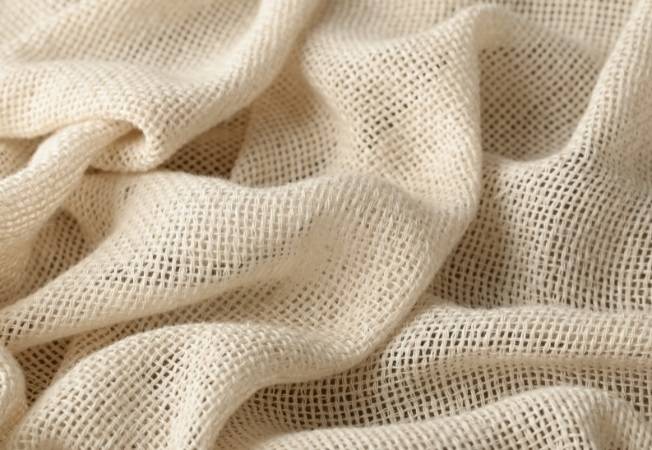
COTTON VS HEMP FIBER: THE COMPARISON OF MAIN FEATURES AND BENEFITS
Durability & strength
When it comes to durability, cotton is softer but becomes thinner and degrades over time. On the other hand, hemp’s canvas softens over time and is much stronger. It is highly durable and sturdy and is not susceptible to shrinkage when washed in cold water. Another great feature of hemp is that it is highly resistant to pilling and minimally prone to wear and tear.
The longevity of the product also translates into cost savings in the long run.
Comfort & softness
Cotton is famous for its softness; however, its fibers degrade and break down gradually, mainly from washing.
Antibacterial and antimicrobial features
Hemp is famed for its remarkable antibacterial properties among other natural fibers, including cotton. This is due to the presence of cannabinoids which protect the skin. Another component, THC, is responsible for protection against fungi, bacteria, bugs, mold, and mildew.
Color retention and UV resistance
Textiles and clothes typically fade by being exposed to sunlight (UV radiation). Since hemp has high UV resistance naturally, the color of your clothes will not fade and will stay bright.
One of the most prominent features of hemp fiber is its absorbing power, meaning it requires less treatment. Hence, the process of dying is quick and simple and color retention level is high. Pure cotton has a tendency to bleed color in the beginning.
While cotton mostly occurs in white color, hemp fabrics can naturally come in several colors: creamy white, green, brown, black, or grey. Different colors are achieved by distinctive methods of fiber removal from the plant’s stalk.
Moisture absorbance & breathability
Cotton gained popularity over other materials due to its breathability features. It is known to remove body odors by effectively absorbing moisture; hence, it is a popular summer outfit choice.
COTTON VS. HEMP SUSTAINABILITY: WHICH ONE IS BETTER AT PRESERVING PLANET’S RESOURCES?
When it comes to sustainability, hemp outperforms conventional cotton in several areas, making it an eco-friendlier choice. Its lower water requirements, reduced pesticide use, positive impact on soil health, and lower carbon footprint make it an eco-friendly choice for those seeking to minimize their environmental impact and contribute to the preservation of our planet’s resources for future generations.
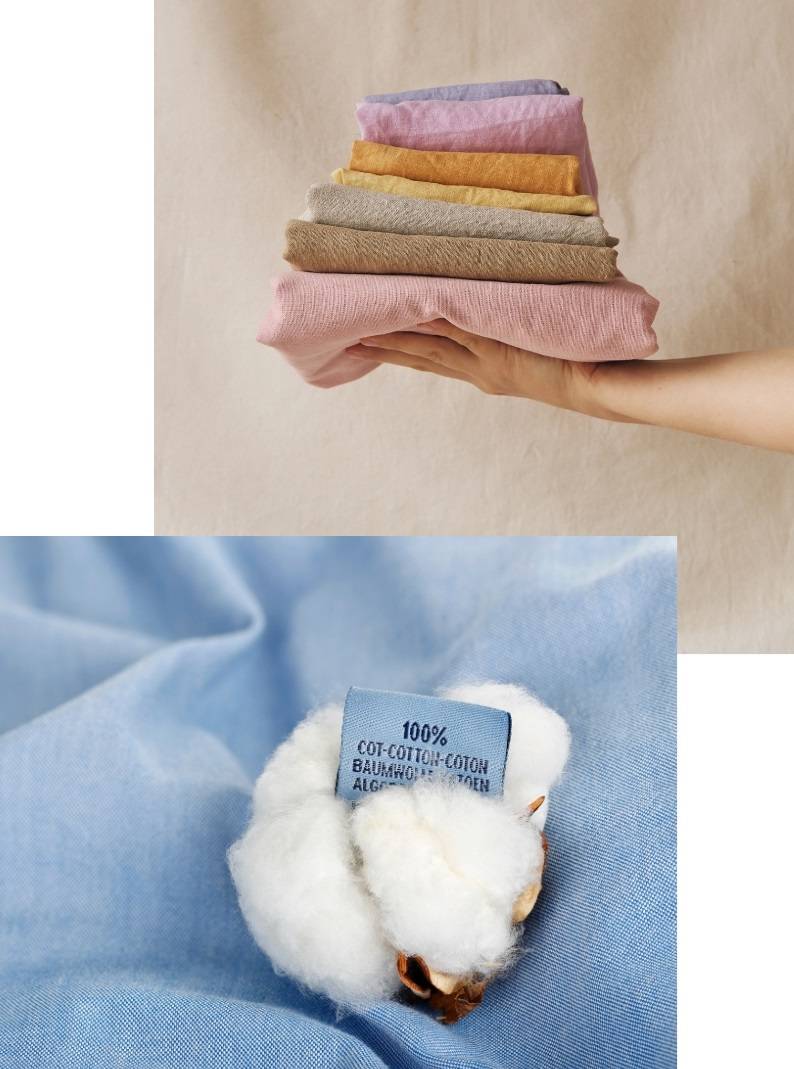
Hemp Uses Less Water
Compared to cotton, hemp needs significantly less water to grow and can flourish with minimal irrigation. Generally, it can be raised with rainwater only, thus conserving water and minimizing concerns for water scarcity. On the other hand, cotton is known for high water demands during cultivation. It is believed that one kilogram of cotton (about 2 lbs.) requires about 20,000 liters of water, while a kilogram of dry hemp can be produced using about 300- 500 liters only.
Hemp Does not Need Pesticides or Herbicides to Grow
Hemp is naturally resistant to pests and insects, which is a highly beneficial property, as it allows farmers to grow it without any harmful pesticides. At the same time, cultivation of cotton requires lots of pesticides and herbicides to fight weeds and pests. It is believed that about 10% of all agrochemicals stem from the cotton industry. Cotton farming uses 4.7% of the world's pesticides and 10% of insecticides. Its production pollutes the environment and poses risks to people and ecosystems.
Hemp Enriches the Soil
Hemp cultivation is highly beneficial for biodiversity, as its plants have deep roots which aerate the soil, help prevent erosion, and provide increased microbial activity. Additionally, its foliage and fast growth naturally stop weeds, thus eradicating the need for herbicides. Conversely, cotton depletes the soil on top of increasing the risk of erosion.
Hemp Is a Carbon-Negative Plant
The cultivation of hemp is carbon negative, which means that the plant absorbs and locks in more carbon dioxide during their growth cycle, than it is emitted by the equipment used to cultivate the crop. Overall, hemp cultivation helps mitigate climate change. Furthermore, it needs less energy-intensive processes, such as irrigation or fertilizers production.
HEMP VS. COTTON PLANT: ADVANTAGES AND DISADVANTAGES
To summarize, we will list the pros and cons of both plants.
Hemp Plant Advantages
- More than 20,000 uses
- Strong and durable fiber
- Natural moisture wicking
- Does not require pesticides or chemicals to grow
- Minimal water requirements
- Eco-friendly and biodegradable
- Reduces tree deforestation
- Destroys weeds naturally
- Enriches the soil
- Effective carbon absorbing
- High nutritional value
- Can be cultivated almost anywhere
Disadvantages
- Constrained supply (it is not legal everywhere)
- Products can be pricier, as they are harder to obtain
- Hemp fabric can be prone to wrinkling
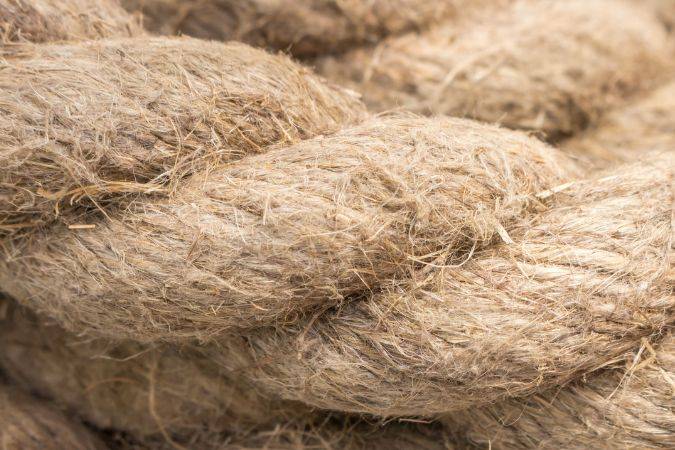
Cotton Plant Advantages
- Biodegradable and natural
- Breathable and flexible fibers
- A wide range of applications
- Soft and comfortable fabrics
- Easily accessible
- Affordable prices
Disadvantages
- Requires huge amount of water to grow
- High CO2 emissions
- Needs lots of land for cultivation
- Not environmentally friendly plant
- Pesticide-intensive crop
- Human health impact (chemical exposure)
- Soil depletion
VERSATILE COMMON USES OF HEMP AND COTTON FIBERS
Cotton
- Fashion industry (t-shirts, dresses, trousers, underwear, shoes)
- Home textiles (bedding, linens, curtains, napkins, tablecloths)
- Medical & Hygiene products (masks, gowns, bandages, sanitary pads, diapers)
- Industrial (filters, ropes, tents)
- Paper and stationery (writing paper, envelopes, printing paper)
Hemp
- Apparel & accessories (t-shirts, pants, jackets, dresses, shoes, backpacks)
- Home textiles (towels, curtains, rugs, upholstery, napkins)
- Industrial (insulation, ropes, cords, bioplastics, building materials)
- Packaging & paper (cardboard, envelopes, newsprints)
- Personal care (lotions, creams, balms, soaps, shampoos)
- Health & Wellness (oils, tinctures, topical ointments?)
- Nutrition (including animal feed)
- Ecological restoration
WHY HEMP FIBER IS BETTER THAN COTTON FOR CLOTHING
- Long-lasting shape retention
- Softens with time
- Extra durable and strong
- Moisture absorption
- Antibacterial and antimicrobial resistance
- Hypoallergenic properties
- Resistant to pilling and abrasion
- UV resistance
- Thermal regulation
- Eco-consciousness
- Better color retention
HEMP VS. COTTON: FINAL THOUGHTS
Hemp and cotton have lots of similarities. They have been around for thousands of years and are used mostly in textile and fabric manufacturing. However, hemp outshines conventional cotton in several key areas, like durability, strength, and eco-friendliness.
Hemp has clearly proven to be one of the most sustainable and versatile fabrics. Its health and environmental benefits are unmatched; hence, we see an increase in its cultivation and production.



